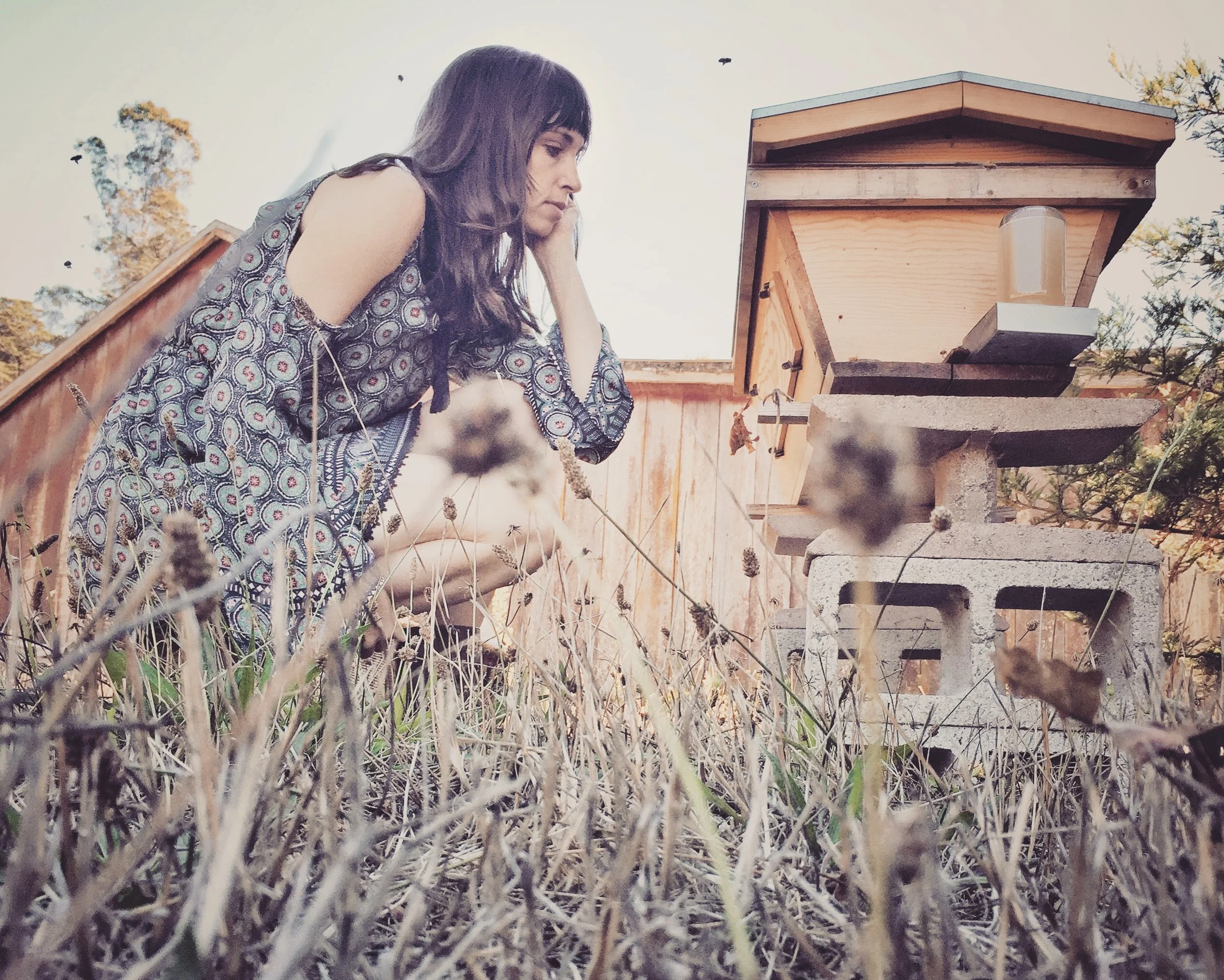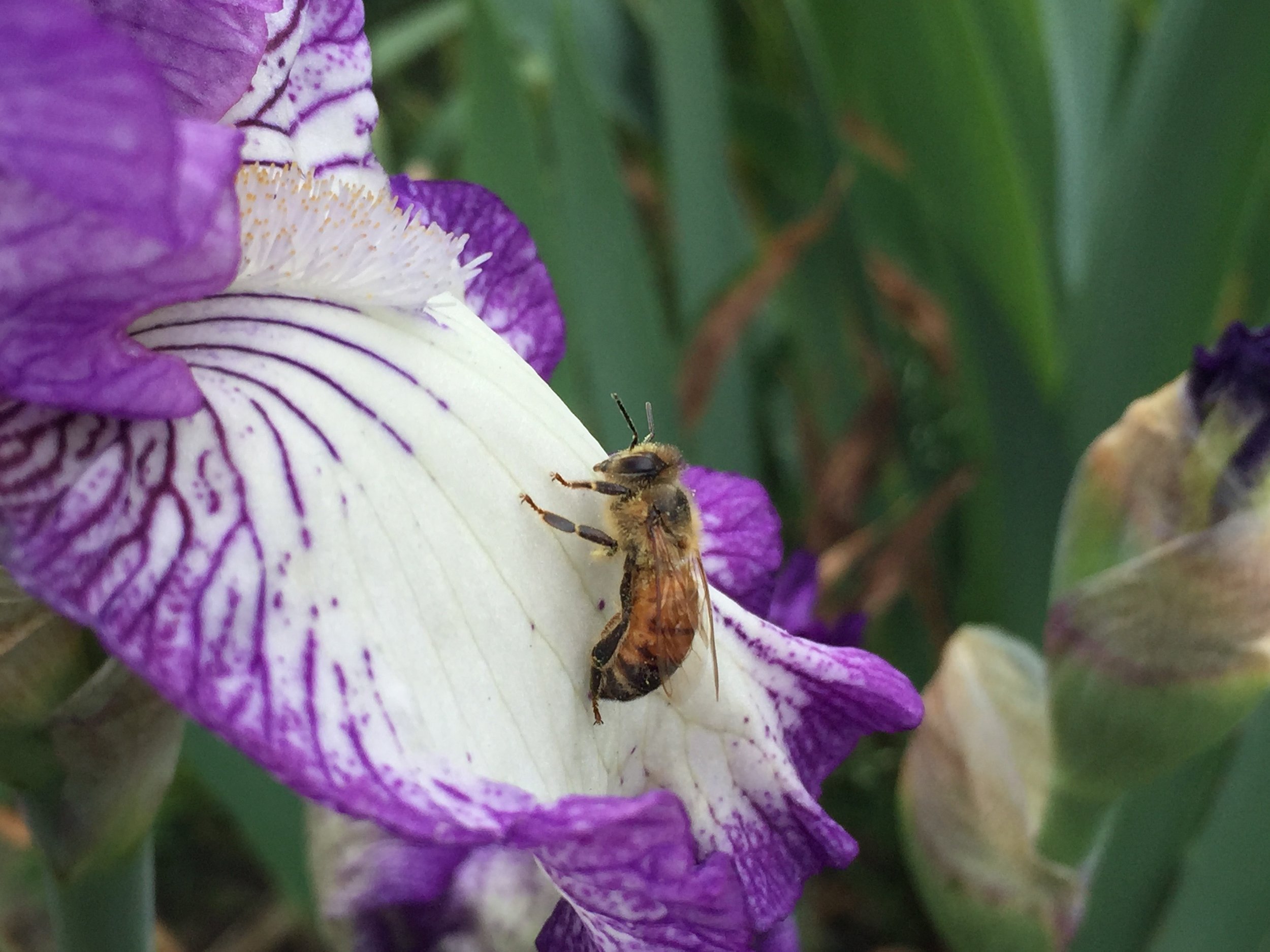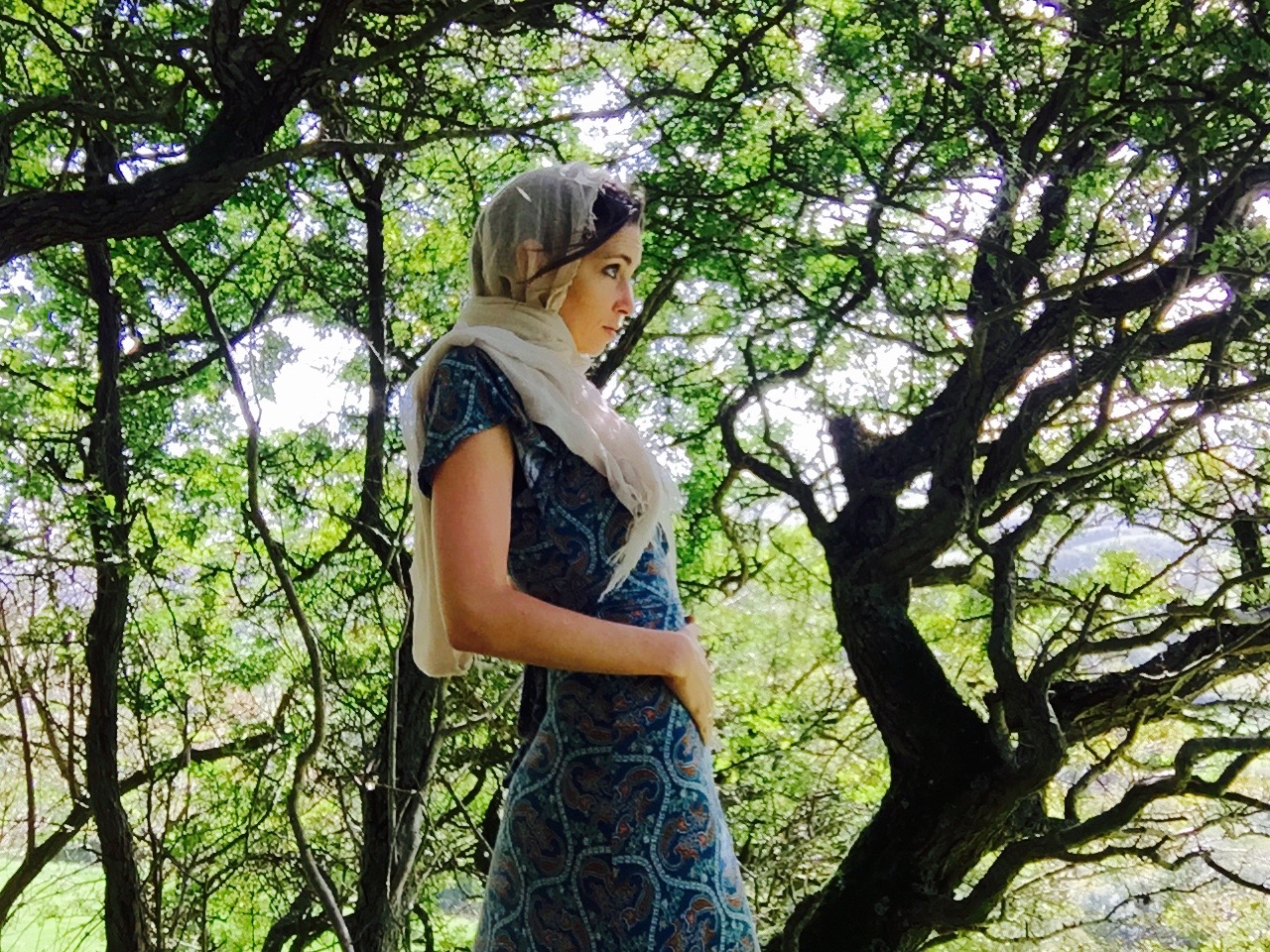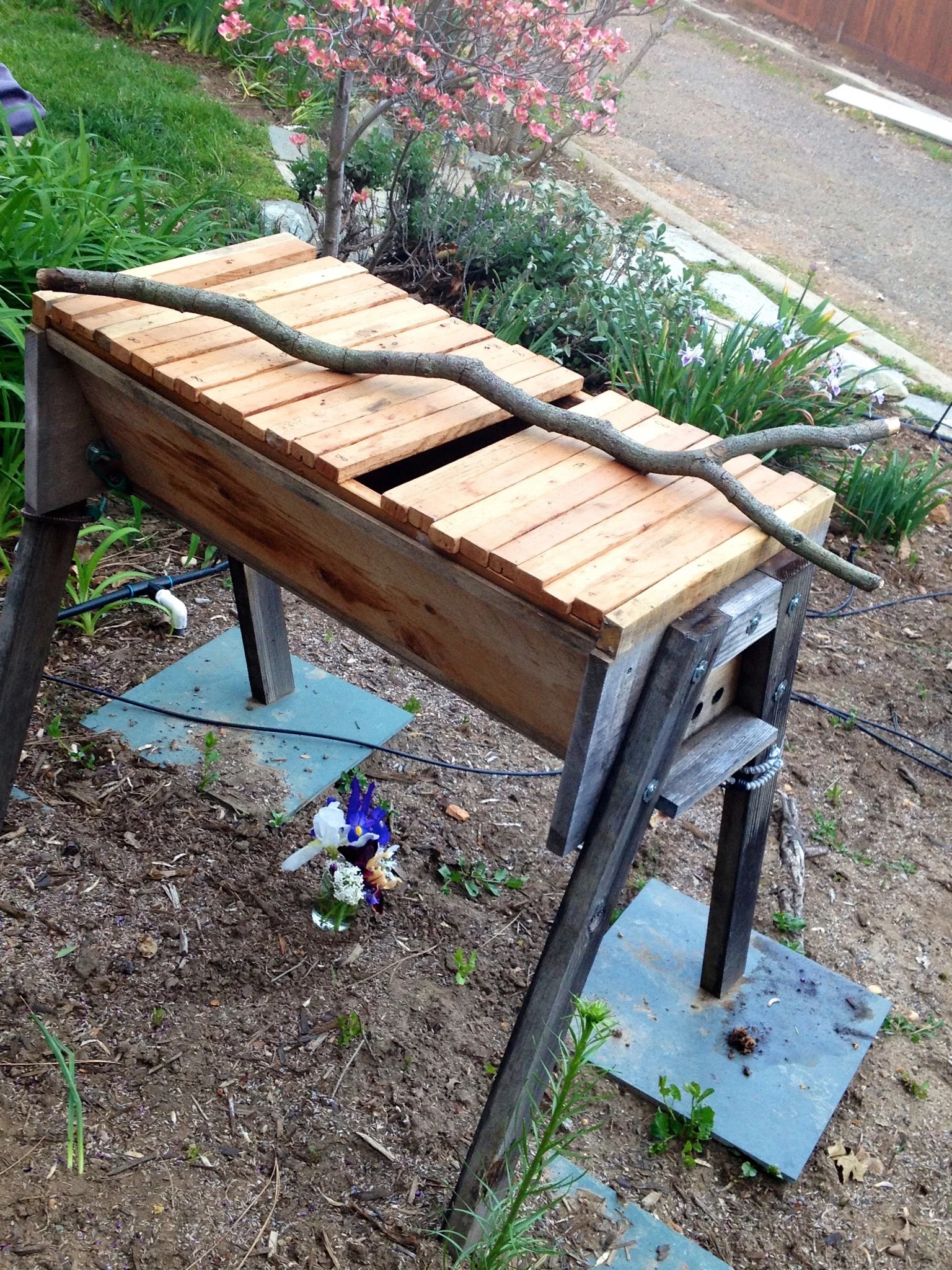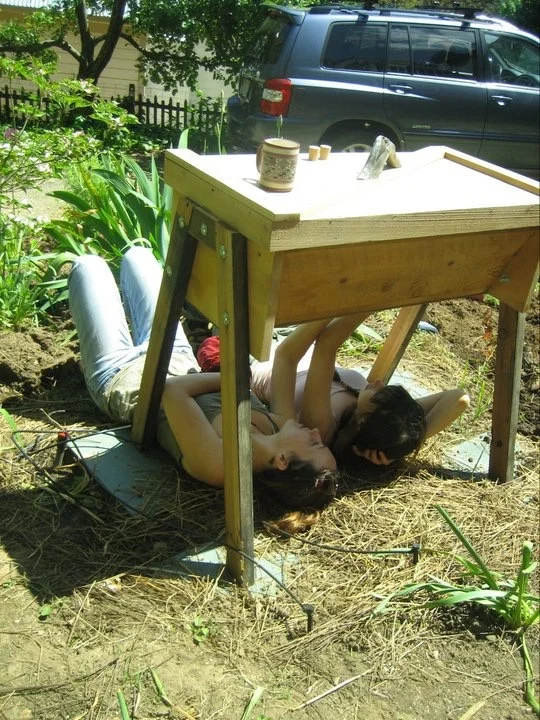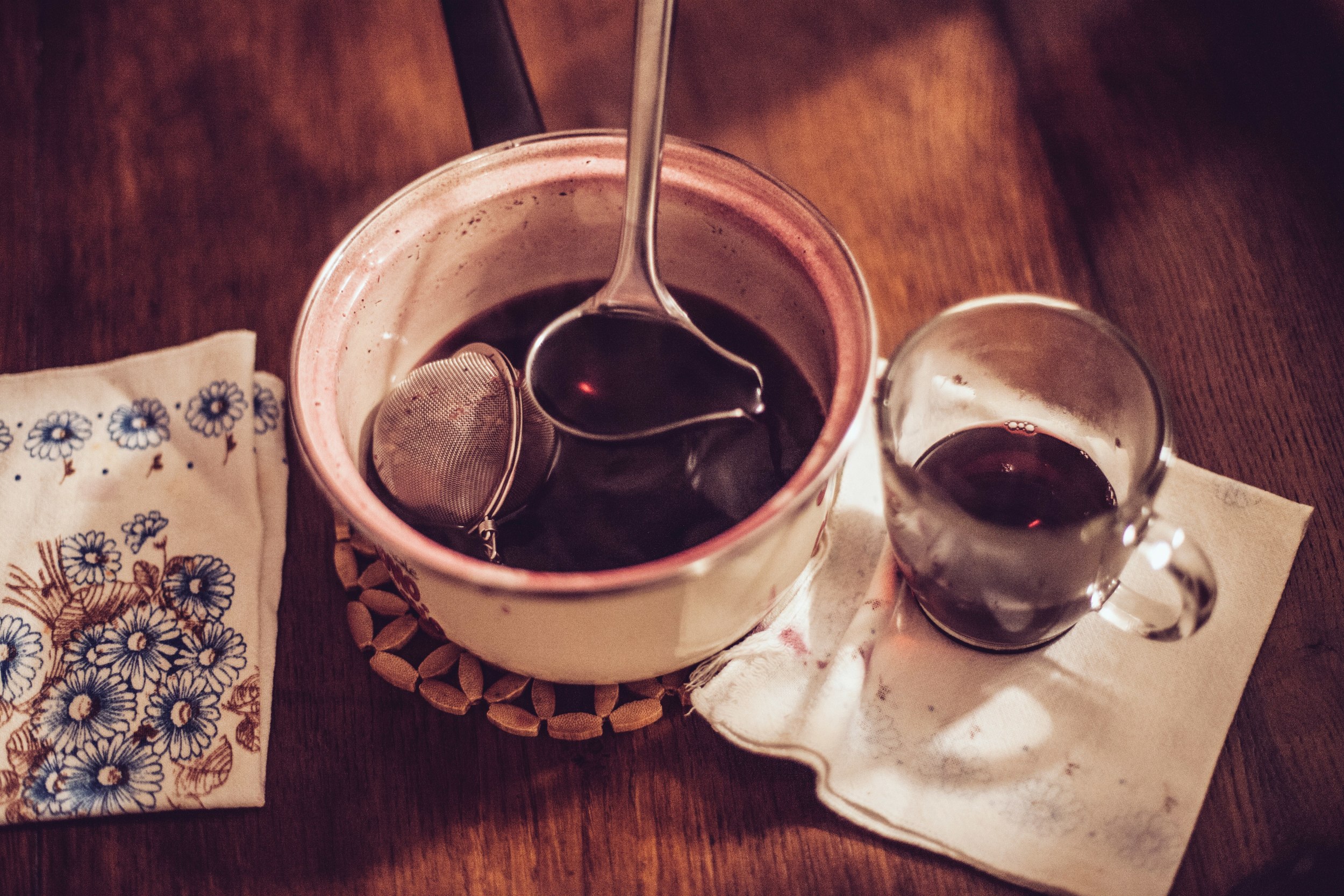Respecting the Sovereignty of a Body
Happy Friday the 13th, a day long associated with women’s bodies and women’s cycles. Did you know that a woman has her moon cycle about 13 times a year?
Happy Friday the 13th, a day long associated with women’s bodies and women’s cycles. Did you know that a woman has her moon cycle about 13 times a year? Funny how a number associated with women’s potency, power, magnetism and fertility was conveniently turned into an “evil” number.⠀
⠀
As we do the incredibly tenacious work of teaching the world to honour women’s bodies, we are doing so much more than supporting female bodied humans. There is a direct line from subjection and abuse of women’s bodies to the abuses done to the Earth and it’s creatures. With the advent of Patriarchy, the act of imposing power over a woman’s body led to the skewed world view of man’s dominion over the Earth rather than partnership and stewardship with the Earth. The inherent fecundity of the Earth has long been associated with woman and the power of the womb. Despite ages of misogyny, the Earth is still called Mother Earth. Even after the arrival of Patriarchy, there continued long-held beliefs associated with the Goddess of the land. In Celtic nations, to earn governance of the land, the King had to wed the land, known as Sovereignty. It was only she who bestowed sovereignty upon him. ⠀
⠀
The suppression of a woman’s voice, the denial of climate change, and modern day beekeeping practices are all related. They all source from a belief system that is both threatened by and in direct opposition of the sovereignty of the body. When we started placing more power in the As Above, ignoring the So Below, we forgot our own birthright as beings woven into the fabric of life. One of the most radical things you can do to disrupt the broken system of our times is to listen to the body. Yours, the bees, your children’s, your beloved’s, the Earth’s.⠀
You want to be a beekeeper? Start with hearing and respecting the inmate language of your body.
Thank You For Loving
🧡 To all the women out there who do and do and do. Who are the mistresses of the hive, tending to the young, the honey chambers, the fields of plenty and the fields of lack, thank you.⠀
⠀
🧡 To all the women out there who do and do and do. Who are the mistresses of the hive, tending to the young, the honey chambers, the fields of plenty and the fields of lack, thank you.⠀
❤️ To all the women who are trying to listen to the body, following their rhythms and learn how to listen to a body wisdom we were not taught, thank you.⠀
💚 To all the women who are teaching themselves how to express honey and sting in the same sentence; who are learning how to have boundaries and an open heart, thank you.⠀
💜 To all the women who are reaching toward sisterhood, despite the societal constructs of divisiveness and isolation; who are seeking to express vulnerability, authenticity, and know their own unquestionable belonging in the hive, thank you.⠀
❤️ To all the women who are looking for new ways to relate to the masculine, to see the wild god in exile, to see the lover in the flower, to hear the song of the drone bee, to celebrate his heart without diminishing your own sovereignty, thank you.⠀
💙 To all the women pollinating their lives with earth honouring practices, prayers, dreams, gardens, poetry, art, activism, education, and devotions, thank you.⠀
🖤 To all the women who recognise when the hive must turn inward to the silence of winter, dreaming of a new spring; who struggle to give themselves the gift of the pause, to create a new model of cyclical care, thank you.⠀
💛 To all the women who want to be all these things and are still trying, still stumbling, still experimenting, still human, thank you.⠀
Thank you for loving.⠀
Witches? Why, Thank You.
I don’t speak on Halloween. I don't write. I honour my ancestors. It’s an exercise in liminality. I’ve been doing this since I was 15. Last night, a group of female friends and I decided to dress up all in white, paint our faces white, and pass candy out to kids.
I don’t speak on Halloween. I don't write. I honour my ancestors. It’s an exercise in liminality. I’ve been doing this since I was 15. Last night, a group of female friends and I decided to dress up all in white, paint our faces white, and pass candy out to kids. All this, while seated in a semicircle, silent. See, the town that my sisters and I evacuated to during the fires happens to be THE BEST town for halloween. Over a thousand trick or treater’s passed by the house where we held our silent counsel. ⠀
When you don’t speak on halloween, people like to guess what you are. It’s become half the fun for me. ⠀
We got a lot of good guesses: zombies, ghosts, ghost-brides, but what most people called us? Witches. Oracles. “Are you going to tell me my future?” “Are you the Oracle of Delphi.” “Look at the witches!”⠀
We weren’t wearing pointy hats. We didn’t have broomsticks. For goodness sake, we were trying to be creepy. Yet deep in the human psyche there is a recognition of feminine power. How could there not be? Women were spiritual leaders, shamans, priestesses and prophetesses for much longer than the genocidal claws of Christianisation. When every aspect of our spiritual and religious authority was stripped from us, we still found a way to hide it in our weaving, our cooking, our storytelling, our songs. ⠀
Witches you say? Yes. We’ll take it. Witches. Wyrd Women. Fates. Spinners. Pythonissa. Incantrix. Fee. Hag. All the different ways to say world-weaver, healer, woman who walks the edge places. Hedge-woman. Truth-speaker. Poet-prophet. Way-finder. Midwife. Night-Farer. Shapeshifter. Banfáith. Fate-seeress. Divina. Mystery-singer. Strega. Pharmakis. Blesser. Bruja. Heathen.⠀
Five women, clad in white, holding silence on the eve of the ancient heathen new year? Witches, you decide, as you gather candy from a basket. This is because something in you, no matter how deeply buried says “This. I recognise this. I know this. She is power. She is prophecy. She is not forgotten.”⠀
Just Another Animal Experiencing Autumn
Ever notice how love, loss and longing get stored in your body the same way seasons do for every other temperate animal on earth? There’s a kind of body knowing that arrives. There’s a kind of body knowing that arrives. It sneaks in and gives you emotional responses to things that feel out of context, until you examine the seasons of your life.
Warning.
This isn’t about bees. It’s about love. Except, maybe stick around, cause I *might* throw some bees in for good measure.
Ever notice how love, loss and longing get stored in your body the same way seasons do for every other temperate animal on earth? There’s a kind of body knowing that arrives. It sneaks in and gives you emotional responses to things that feel out of context, until you examine the seasons of your life. The bees feel it. They react accordingly. It’s not a surprise, it’s instinct (see how I did that).
We talk about calendar dates, but what’s really running the internal clock is seasons. Autumn has always been my love season. Maybe it’s because the first time I fell in love was in early fall. When autumn rolls around I feel Love courting me. Grief works the same way. It slips in with the seasons. Something about the particular angle of the light, the smell of dry grass, the color of the hills. This week, as late summer heat merges with early fall chill I’ve been experiencing an unexpected wave of grief. A longing and sorrow. I didn’t even realize it was exactly a year since my last heartbreak. My body told me. The body remembers. We store powerful experiences in our body. They emerge with all sorts of prompting, but seem especially prone to blooming when the earthly seasons shift, creating the same sensory experience you had when that thing happened to your heart that one time. Tragedy, ecstasy, love. It all percolates up from the depths of you just so it can meet the season of its birth once more. I believe if handled with care, this is part of what we call Healing.
Last summer I fell in love in Paris. How cliché. But hear me out: it was with a long time friend who lives in Europe and whom I’d been in occasional rendez-vous for 13 years. Okay okay, it’s super cliché. Still, it was vey real and very mutual. Change your life real. Do things you’d never thought you’d do. Willing to make sacrifices. That kind of real. Obviously it didn’t work out. Reasons? Something complex mixed with something as simple as I wanted kids, he didn’t.
It doesn’t change the love for each other. He’s still one of my favorite, long-life friends/lovers. Our entire love affair is based on walking through ancient city streets for hours in a never-ending labyrinth of delicious conversation. I gave it my best. I flew back to Europe in September. I put it all on the line. My heart broke. Enter Autumn.
Now here we are, flirting with Autumn and all her potential affairs, while the season moving through my body is also reminding me that this is a time to weep. I think this is what it is to be an animal. This is what it is to let the natural flow of emotions move through you. Call it the feminine rising. Can we make room for it? Can we allow room for grief and love to pass through all the ventricles of our heart, without setting mandates on when we’re allowed to feel what and for how long? Take April for instance. I always get irritated in early April. Short tempered, easily frustrated and prone to cry. You’d think I’d remember by now, but as time goes by it become more subtle and I have to slow down to notice. What happened in April 9 years ago still plays out in my body-heart even when I’m not paying attention. All that frustration and irritability is a cover for the insane grief of miscarriage followed by years and years of praying for a partner and a baby. No wonder I get snippy in April. Once I realize what’s going on and have the breakdown with the big tears, everything shifts and the season of April is tolerable again. It surprises me every time.
Whatever it is - falling in love, the day your mother died, the birth of your child, the time the fires came - it’s tracking the seasons even if you are not. Give it room. Give yourself time. Usually all it wants is to be noticed and respond to accordingly. When the flowers dry up and the nectar stops flowing, the bees respond accordingly. When the smell of rain is on the wind, the birds begin their migration. It’s natural. Every animal has learned how to respond to the season. We may have learned a lot of big-brained tricks for pacifying the seasons. We can even try to escape them entirely. That is, until we remember that they are moving inside us, not just around us.
I have spent the last 9 years in a depth of spiritual and shamanic study that demands me to not only be in touch with my emotions, but to also express them. How rebellious. In a culture that fears emotions, labeling women who fluidly move with them as volatile, crazy, intense, or dramatic, the active cultivation of emotional expression is downright revolutionary. Goodness, only a century ago had a disease for women’s emotions named Hysteria.
The thing about these external seasons evoking internal seasons, is there’s no escaping it. You can either suppress it, and suffer the consequences (model for last 2000 years), or pause as the leaves turn, greeting the upwelling of memory and feeling. I’ll tell you what this love and heart break gave me: permission. Like many women, I have spent my life apologizing for my emotions. I remember apologizing to this man, amidst a torrent of tear. Sorry for crying. “Why are you apologizing?” he said. “It’s just an emotion. It’s natural. Let it out. Let it come all the way through. It’s not going to hurt me. If you don’t let it all the way through it will get stuck.”
Yes, ladies and gentlemen, you can spend your life giving yourself permission to be you over and over again, but sometimes, when you’re at your most vulnerable, it takes someone you love saying, yes, you are allowed to be your whole self in front of me. If we could only remember to be that whole self every day. Or to not try to give our whole selves to people who only want a part of us. The raven doesn’t diminish itself in order to be liked by other ravens, or foxes. The lion doesn’t stop being fierce because the wind can’t handle it. The bees don’t stop stinging because you praise them for their honey.
Moral of the story, give yourself permission to be what you are, tears and all. There is a difference between expressing emotions and dumping them on someone else as their responsibility. No one else is responsible for your emotions, but the antidote to emotional dumping isn’t emotional suppression (hint: that leads to dumping). The answer is expression. Allow them to exist. To move through your body, your art, your music, your cooking, your love affairs, your cry in the shower. And don’t you dare let someone else’s discomfort with emotions tell you that you having emotion is some how wrong. You, dear feeling creature with the sea in your eyes and falcons in your hair, your existence is not wrong.
They Made Me Do It
What is it about beekeeping that encourages so many dudes to mansplain and publicly shame other beekeepers? Particularly natural beekeepers. Particularly female natural beekeepers? In my Facebook group a female treatment free beekeeper selling honey at a local market was recently approached by a very aggressive and strongly opinionated male pro-treatment beekeeper who talked AT her while she just sat there.
What is it about beekeeping that encourages so many dudes to mansplain and publicly shame other beekeepers? Particularly natural beekeepers. Particularly female natural beekeepers? In my Facebook group a female treatment free beekeeper selling honey at a local market was recently approached by a very aggressive and strongly opinionated male pro-treatment beekeeper who talked AT her while she just sat there. What the hell dude? If this was an isolated incident, I’d say it was a guy having a bad day, but do you know how often women write me asking how to respond to the [insert shitty behavior descriptor] men at bee meetings/classes/online forums etc? I know mansplaining and aggression is everywhere, but non-beeks, let me tell you, it’s seriously bad in the beekeeping world. I’m also super passionate about music, food, hiking, travel, and wellness and in none of those areas have I experienced or witnessed the level of shaming from men.
Pause to acknowledge: yes, men and non-gender binary beekeepers also experience shaming from men, women and non-gender binary folk.
Double pause to acknowledge: all the amazing men who are not like this at all and possibly suffer from same types of experiences.
Resume: I’m not here to bad mouth all men, but the question stands, what do we do as women when we are being aggressively shamed by men in our field? I wish I had it in me to tell someone to just eff the fuck off, but that’s *generally* not my nature. So what else? Is the person lecturing me on how I’m the reason bees are dying really going to pause and thoughtfully listen to my counter argument? What if I do say something? Will the situation escalate? Because underneath the lack of response from women like me who have learned to be nice, and patient and not too “emotional” there is fear of violence.
Fear of violence pervades even if we know it’s highly unlikely that Angry Bee Man would be violent if we politely asked him to leave us alone. It’s the fact that the fear it there, under the surface (or on the surface). It’s not logical. It’s not based on reason, but it’s there because well…look at history. You could come from a community of the kindest, bravest, most nurturing men and history still has: the Burning Times, genital mutilation, child brides, sterilization of Native American women, women as property of men, honor killings, and of course domestic abuse and rape.
Hey, kind, loving men, are your hackles up because none of this describes you? Anybody wanna tell me I’m over-generalizing? Choose love over anger? Love over fear? Anyone wondering how on earth do I get from Angry Bee Man to rape and murder? Am I being too emotional? We live in a time when the transgressions against women, the earth, people of color, and gender non-binary folx are being dragged into the light by everyone in those groups. We’re living in a time where women are exercising their voice, which was silenced for centuries. Is STILL being silenced. But there’s more room. There are walls that are crumbling to the many tiny hammers eroding the walls of Patriarchy.
Is there a connection between Angry Bee Man and inherent violence? There is. Will he be violent? No. Not likely. He’s just abusing his power. Turns our he’s the product of a system. He’s probably really passionate about saving bees. You’re treatment-free way threatens him. It’s not an excuse to warrant bad behavior, but he’s just doing what the men before him did. The problem is, typically when a woman raises her voice and yells at a man, it doesn’t come with the potential threat of life threatening violence. But regardless of how unlikely it is, when a man is aggressive with a woman, that fear can and often does lurk beneath the surfae. Why? Because of frightening statistics like in the U.S. “The rate of women murdered by men in single victim/single offender incidents rose by 11 percent between 2014 and 2016.” (UNICEF)
I’m getting off topic. Well no, it’s not. Not really. Violence against women. Violence against bees. Violence against the Earth. It all comes from the same place of gross imbalance perpetuated by over 2000 years of a world view that sees women as inferior and/or property of men. The same view sees the Earth as inferior and in need of dominance by man.
I’m not pointing a finger at all men or saying you don’t have a right to your opinions and your anger. I’m saying women are learning not to tolerate bad behavior. Women also have a right to their anger, especially when centuries of violence and oppression sit behind it. The ways to stop women-shaming behavior are manifold, but they include women’s anger. There is a kind of anger that arises out of fear of something you have (power) being taken away from you. This can be especially frightening if you are a man (especially a white man) who has experienced your privilege as the norm. There is another kind of anger that arises out of refusal to continually be abused by a social system that suppresses your voice, especially if you are a woman (or anything else that’s not cis gendered white male). Obviously there are degrees of extreme to what people endure at the hands of others. That being said, until women have an equal voice, equal right and are equally safe in their own bodies, men are going to have to get used to new rules.
Women are learning to use our voices to say no to dominance over us. There’s a difference between explaining something in a conversation and patronizing a woman, talking over her, and telling her how it is without asking (and listening) to her opinion. Until women’s voices are regarded as equal to men’s voices, men are going to have to deal with the sting of our words.
So what do you say to the Angry Bee Man who wants to know why you don’t treat your bees you naive-irresponsible-hippie-witch? Here are a few thoughts:
“I’d love to have an adult conversation, but since that isn’t an available option at this time, I decline further contact.”
“Did you know Saint Brigit sent a host of bees to defend against men trespassing on her land?”
“This is a great topic to bring up with someone else.”
And my personal favorite:
“Have you heard of the goddess Lilith? Persephone, per chance? They made me do it.”
The Face of the Hive
You know how you learn to read your dog? Her expressions of love, worry, silliness and eagerness? Or how your cat does that one tail flick when he’s proud of himself?
What happens when you can’t see the face or hear the meow? Bees, as individuals, have faces, but what is the “face” of the colony? A colony, after all, is an organism. A whole that is the sum of many parts.⠀⠀
⠀⠀You know how you learn to read your dog? Her expressions of love, worry, silliness and eagerness? Or how your cat does that one tail flick when he’s proud of himself?⠀⠀
⠀⠀What happens when you can’t see the face or hear the meow? Bees, as individuals, have faces, but what is the “face” of the colony? A colony, after all, is an organism. A whole that is the sum of many parts.⠀⠀
⠀⠀As beekeepers in protective suits, we can manipulate the hive without too much consequence. Guard bees will try to sting you, but you are safe behind the suit. If you squish a bee no one yelps or cries out. If you move too roughly, just to get it done, and bees get crushed under a langstroth box or between topbars, guard bees will react, but we don’t see the face of pain. We hurt individuals, but we don’t see the effect on the whole.⠀⠀
⠀⠀How can we try to befriend not just the cute individual bee but the faceless being that is a hive colony? All too often I witnessed rough handling because we can get away with it. Why? Because bees don’t exhibit the qualities of stress and grief we are used to recognising in mammals. Every time I’m in a hive I ask, how can I slow down more? How can I listen better? Who am I seeing here? It is a “they”, but also a whole (whom I call a “her”). Brining in a more feminine approach to beekeeping isn’t just about intuition and skirts, it’s about how we can work WITH a being rather than dominate over a being.⠀⠀
⠀⠀Bees are not domesticated. They never will be. We will never conquer them. We will never replace them with more efficient robots. We will never successfully tweak their genetics without harming them. The influence of the feminine is needed here. It is part of the rebalancing needed in both men and women as we attempt to knit ourselves back into the natural order.⠀⠀
⠀⠀So let us be in service to the mystery. Let us attempt to befriend the faceless being who sings the Song of Songs and builds cathedrals of gold.
Shamanism Meets Tea Time
I’m about to board another flight to London. I seriously can not wait for scones and tea at No. 9 on the Green in Wimborne. I am visualizing pouring cream into a saucer as I write. Heaven.
I’m about to board another flight to London. I seriously can not wait for scones and tea at No. 9 on the Green in Wimborne. I am visualizing pouring cream into a saucer as I write. Heaven.
I have a suitcase filled with long skirts, a wooden distaff, special rocks, wellies, and an air purifier. Not the most obvious choices for a trip to England. Ok, the wellies get a pass, but they’re so damn heavy and awkward. (Please don’t tell me to wear my weight on the plane. You ever try wearing knee high rubber boots 7 miles over the ocean?) I’m on my way to the Sacred Trust, a school for shamanism, deeply rooted in the Path of Pollen, a European shamanic tradition with the honey bee at its heart. The air purifier is just because I’m allergic to mold. Go figure.
People have started to ask me if I live part time in Europe. I’d LOVE to say Yes, but the answer is, not yet. Since 2010 I have been traveling to the Sacred Trust to study a form of shamanism that survived the Romans, the Dark Ages, and the Inquisition. I equate it to a graduate program. A big investment with my time and money, which is helping improve my mind, body, heart, career and life path. That’s how I justify it to my left brain. My right brain couldn’t give two effs, because this work is 600% soul food.
The school teaches a line of gynocentric, bee-centric shamanism that honors the feminine principal. It is mostly made up of female students, although there are many men starting to take newly offered classes for all genders. It mostly works with bees, but there are serpents, stags and spiders woven in. It is multidimensional and embraces the betwixt and between.
The tradition is a small golden thread. A quiet hum that lasted through the burning of our grandmother’s grandmothers. It’s an answer to my American hunger for spiritual belonging. A hunger that longs for a sense of spiritual roots, but wars with how to be a native Californian without appropriating the spiritual traditions of the Indigenous people of this land. I can not begin to describe the relief I felt when my heart encountered the bee tradition and I cried those soul-aching tears of recognition, knowing that somehow, not all had been lost.
Let’s unpack that for a moment. First and foremost, I need to address privilege. I’m a white, western woman. My ancestors are oppressors and I carry that in my lineage. I refuse to be blind to my own privilege, and as a result of that refusal, I keep discovering ways that I have been. Let me just state that I am learning and I have a long way to go. Also, I fly over an ocean 1-3 times a year in the pursuit of earth-based wisdom connected to the part of my ancestry that was oppressed by Patriarchy and Christianity. So while I resist the dominant social institutions of the former two powerhouses, I am also partaking in the hypocrisy of the entire capitalist, planet-degrading #deathspiral, by using fossil fuels to catapult me in a metal box to a place where I can feel connected to the earth. That’s some real bullshit right there.
Yet, I also subscribe to the idea that there are certain soul places on this earth. Certain spots that speaks to us. Speak through us. Calls us. Awakens us. Claim us. Can a person be OF their native soil and also OF a patch of earth 6,000 miles from where they first touched their feet to the dirt? I most certainly have been claimed by more than one place in my life. Just are sure as I have been claimed by more than one heart. The English countryside is one of those places. And it requires a good set of wellies.
On with further unpacking. When I say I cried because “not all had been lost”, I mean, I am woman and a member of the gender(s) who were and continue to be shamed, maligned, violated and abused for our sex/identity. The wisdom ways of women and the honoring of the feminine in earth-based traditions were nearly snuffed out in Europe’s long history of violence against the life-bearers. Coming to a tradition rooted in my ancestor’s homeland that honors the voice of the womb and the power of the feminine principal is cathartic, to say the least. We ascribe voices to various body parts all the time, but when was the last time you considered the womb to have a voice? Not just the heart, or the head or the phallus, but the womb? Think about it.
Now imagine if you found a place tucked between meadow and forest where you were encouraged speak with that voice. Dance with that voice. See with those eyes. Utter with that yonic intelligence. Imagine relearning your body as though it were flowing with nektars, like a flower. Imagine learning new tongues informed by wind, sea, honey and fire. For those of you who have been wondering why my feed is periodically filled with photos of tea and cobblestones, that is why.
What is The Path of Pollen? I can’t really answer that. It is indefinitely ancient and ever new. It’s part of a very old story. It’s part of writing a new story. Its fingers are made of threads, its head made of stars, its womb made of bees, its longing made of serpents entwined. It is wombic. It is phallic. It is Both And. It is Neither Nor.
I am part of a tradition that stretches its storylines back through the distaff path of ancient Europe. It is a tradition of bee women, known as Melissae, and is very much alive and well in the modern world. The Melissae were the bee priestesses of ancient Greece, most commonly connected to the oracular Temple of Delphi. The Delphic Oracle, also called the Delphic Bee or Pythia (pythoness), was the prophetess for the Earth and of the Earth. It is said the priestesses inhaled the breath of the Dragoness, Python, Gaia’s daughter, and entered a trance, uttering prophecy for all who came to the temple.
I am here to remember how to listen to the voice of the earth, as she arises, a buzz, from within. Ten thousand bees offering nectar on the breath of python. May I be so lucky to glimpse her in the mirror.
And I’m here for tea, scones and whisky, because I’m multidimensional AF.
Stalking the Wild Feminine
It’s going to be hot out there. No-option-but-naked kind of hot. Snake weather.
The bees will be gathering water from the banks of the Eel. The water ouzel will be dancing her grey-winged hop up and down the river. The bears wont come near. There are too many of us.
It’s going to be hot out there. No-option-but-naked kind of hot. Snake weather.
The bees will be gathering water from the banks of the Eel. The water ouzel will be dancing her grey-winged hop up and down the river. The bears wont come near. There are too many of us.
Tomorrow I’m going backpacking with thirteen dear friends. A reunion in the California wilderness. Ten years ago, we piled our bright eyes and burgeoning adulthood into a few likely-to-fail vehicles and set out on a four and a half month journey into the wilderness. I wouldn’t exactly call is a backpacking trip; it was less hike-through and more wilderness emersion. Alumni and friends of the Sierra Institute program, we went to learn about ourselves from the wilds and each other.
Three weeks fishing in the Marble Mountains, two weeks tucked under dripping canyon alcoves on the Dirty Devil river, three weeks following the creek lines through the frosty Whites, five days with grandmothers and ceremony in the Sonoran desert, twelve days vision fasting on the Kaibab Plateau with the School of Lost Boarders, a week along the sea battered edges of the Sinkyone. We sat in council, we ate wild watercress and wood sorrel, someone got lost for three days, people shared backcountry romance, people got sick, people got fed up and left, we disagreed, we laughed, we read stories aloud, wrote songs, met bears, wiggled into backcountry skin, made amends with our nature-starved souls, and broke ourselves against modern society.
We’re going back now. Thirteen busy adults with busy lives, affording ourselves four days to pay homage to four months of life altering earth-speak. For me this means snakes. Rattlesnakes. I find it a terrible irony that my favorite place in the wilderness is also one of the most snakey out there. To further the cosmic joke, I was born for wild places, yet life offered me a highly traumatic early childhood experience with death and a rattlesnake. Fast forward through twenty years of snake nightmares and debilitating phobia, and you find me dawning a heavy pack, hyperventilating in an Arizona parking lot, and hoofing it into the snake-rich springtime desert. I would not be defeated by phobia. I would stalk the wild feminine and surely and she stalks me.
Now, I am versed in venom. A woman of the bee, stung time and again. Since that journey, when I came face to face with my nightmare pursuer, I have negotiated a new relationship with bite and sting. I am not less afraid, but I less crippled. I am more whole. It has something to do with learning the language of dreams. With learning to read the story differently. Why does the serpent bite me, pursue me, threaten my sleep? Could it be the old magic, the earth magic, seeking a way in?
The Bees became my bridge to the Snake. In their hidden way, they revealed the old stories about the sacred serpent. She who moves through the earth. She who is pure creative power. Pure sexual life force. The embodiment of the divine feminine. In ancient Greece, the Oracle of Delphi, she who famously uttered prophecy, was known by two names: the Delphic Bee and the Pythia. She was a Melissae, a bee priestess, but she was also of the serpent, the earth-dragon. Pythia is a Greek name derived from Pytho, the old name for Delphi and our root for the snake species, Python. Pytho or Delphi was the center of Gaian mother culture; the navel of the world. This center point was represented by a stone, the omphalos, an egg-shaped carving guarded by Python and used in the uttering of prophecy.
John Collier [Public domain], via Wikimedia Commons
As Patriarchy made it’s way into Greek culture, the Pythoness became a monster. Apollo, the sun god, slew the serpent and Pytho became the Temple of Apollo. The divine feminine force was overthrown, shamed, violated and erased. So, we have another story of how we split ourselves from the natural world. How we took the wholeness of human expression and divided it, driving the stake down through our own sense of who and what we are. Divorcing man from nature. Woman from man. Sexuality from the sacred. The female form, she who knows the language of the serpentine flow, is exiled from the holy. Exiled to the point that today, in American politics around health care, simply being a woman is considered a pre-existing condition.
It is no wonder that I have been stalked through my dreams by the snake. From a shamanic view, to be bit by an animals in dreams, often signifies taking on the animal's specific powers or medicine. It is an invitation, never mind how terrifying. When we dig in to the storied myth-lines of our dreams, when we look at them as more than simply the psychological detritus of our day, we find breadcrumbs towards a fuller expression of self. We find that the antidote is venom, and the poison is our own disconnect between self and nature.
I talk to my bees. I ask them to teach me. I dream with them. I dream of them. They show me through sting, nectar, pollen and hum how to be a more embodied woman. Let's call it earth magic. Tomorrow I will set out on the trail, and have my conversation with the snakes: “You’re beautiful. I love you. I love the way you move. I will not harm you. I am afraid of you. If you choose to show yourself to me, let it be gentle. I love you.” Who knows if it does any good, but it places me firmly in my body, and I begin to weave my way back into Wilderness Self. Perhaps our wild feminine needs to be approached as such, aware of the long exile and the fear that comes from not knowing how to be around a force of nature that is so powerful. Even when that force is expressed through our very form.
You’re beautiful. I love you. I love the way you move. I will not harm you. So mote it be.
Honey Bees as Heart Healers
We women of the bee work in cycles of six. Six-sided, six threads, six sisters, six revolutions. Six years. On this day, six year ago, I found out I was pregnant. It’s a old story really, one that’s been told before, in different words by different women, but it’s also my story with the bees, and therefore, it has a place here. I found out I was pregnant because of a dream. Not my own; that of a friend.
We women of the bee work in cycles of six. Six-sided, six threads, six sisters, six revolutions. Six years. On this day, six year ago, I found out I was pregnant. It’s a old story really, one that’s been told before, in different words by different women, but it’s also my story with the bees, and therefore, it has a place here. I found out I was pregnant because of a dream. Not my own; that of a friend. On this morning, six years ago I woke feeling dizzy and out of sorts. I phoned up a friend, who gently informed me that she had a powerful dream. “There’s nothing wrong with you honey," she said. "You’re pregnant.” The spirit of my daughter had come to her in a dream the previous night asking her to tell me about her and remind me to trust.
In that moment, standing dumbstruck on a busy sidewalk, I felt the most euphoric wash of warmth spread over me, and I understood unconditional love for the first time. I knew she was right. I was pregnant. It was the happiest moment of my life.
Three months later, I lost the baby. She left on a spring day when a late April storm brought fat, lazy snowflakes drifting down on the roses lining the hospital courtyard. I spent two days in that hospital, on the maternity wing, loosing my baby while listening to other babies being born between bouts of sleep and an emergency surgery. I dreamed then, during surgery, of myself giving birth while the spirit of my lost daughter acted as midwife. We were in ancient Greece, surrounded by women and the scent of beeswax and crushed herbs. I was in an order of priestesses that worked with the principals of parthenogenesis. I heard again to trust. It was year later, when I found out these priestesshoods actually existed and that many were associated with the Melissae, or honey bee priestesses.
A recovery bed was prepared for me in the guest room of my parent’s home. A bed which shared a wall with a colony of honey bees. You see, the summer prior, I had gone to The Sacred Trust in England to study with a British shamanic tradition called The Path of Pollen. My introduction to bees was not in fact through beekeeping, but rather through a very old tradition that sees the women of its ways as Melissae, Greek for Honey Bees. While I was in the UK, a wild colony of bees moved into a hole in the exterior wall of my parents home. They built honey comb and raised their young in the space between my recovery bed, and the outside world. The bees kept me company through the darkest hour of my life.
Miscarriage is common. It’s a story that countless women carry in their bodies and memory, but it's not a thing we talk about very often. We are told it’s common, that we’re probably still fertile and to try again. What isn’t included is that for some women, it can include postpartum depression and PTSD, not to mention the unyielding torrent of grief.
I buried what was left of my pregnancy in the garden, beneath an new, empty beehive I built myself. I prayed to the spirit of my baby to bring me bees so that I could be a mother to something. Three days later, I received a call about a swarm. It was my first. The swarm was hanging in the shape of a heart from a blossoming apple tree. Honey bees swarm are an act of reproduction, a great issuing forth of fertile optimism. It happens in the spring, once hives have made it through the long dark winter and new forage abounds. The colony prepares the hive mother (queen bee) for flight and waits for an optimal spring day to rise from the hive is a swirling cloud of wings. A third to half of the hive will leave with the initial spring swarm and fly to a nearby perch, such as a tree, where they will hang in a cluster until a new home is collectively agreed upon. The remaining bees inside the hive will raise a new virgin queen and life will proliferate. It is a truly magical event to witness.
Six years ago I became a beekeeper. A bee mother, in as far as one can mother a highly intelligent super organism that’s been thriving for thousands of years without human intervention. A bee guardian perhaps. Or rather, I fell in love. For me, they became the anchor through which I slogged through PTSD and heartbreak. They kept me tethered to life, when on some level, I just wanted to bleed out. They taught me about the honey and the sting. They were patient with me. They forced me to be present, and sharply brought me back to my body if I drifted. They permeated my dreams. The hummed the song of life, fertility, forgiveness and order. The bees made sure I kept feeling.
The grief story is a human story, and a story we all share. As author and teacher Sobonfu Somé says, “We need to begin to see grief not as foreign entity and not as an alien to be held down or caged up, but as a natural process.” So here I am, still grieving someone I never met. Here I am with tears of the empty womb, for the lost ones, for the motherless ones and the childless ones. Here I am, sitting at the precipice of another swarm season and wondering at the strange synchronicity of life. Wondering about what makes you a mother and when does it count to call yourself one? Is it when your baby is born? Is it when you conceive? Is it when bring a child into your home? Is it when you say yes to raising and caring for another life form?
We bee women work in cycles of six, and today marks six years. Today things are more piercing than usual. Today the memory is close, and the journey of healing is arching out behind me in its multitude of colors. Since that day, when I discovered I held the most precious spirit within my womb, I have started a business dedicated natural beekeeping, initiated dream workshops centred around the honey bee, worked intimately with women and their womb-stories, traveled multiple times back to England to train with The Path of Pollen and found home in a new city. In one week, I will embark on my sixth trip to England to study once more at The Sacred Trust.
Moving into my sixth year as an apiculturist, I am acutely aware of the gift bee-centric beekeeping can be to the beekeeper. Bees can be a bridge between ourselves and the natural world. A way to address the collective grief of nature-deficit disorder by engaging with a species vital to the weave of life on this planet. A way to serve. Beekeeping has been utilised to treat PTSD in veterans and assist in nature-based therapy for inmates in prison. It offers a reason to watch the seasons, to connect to the cycles of life and flowering plants. Without meaning to, we become aware of the fertility of the earth, the places we need to tend and coax into thriving, the places that offer prolific life-sustaining nectar. We hear the hum of a healthy hive, and we are soothed, even if we don’t understand why.
So often, my question is how do we serve the colony? How do we become bee-centric, and not human-centric? How do we see through the lens of the bee. But bee guardianship is a relationship, a two way street, an agreement. Every once in a while, I take a moment to remember the grace of what the honey bee offers us, because, she is after all, central to the fecundity of all life.
My daughter’s hive lived for four years, dying during the summer I moved away. Now, a tree is planted on the site of that old womb/tomb. I became a bee guardian because my womb needed to heal. Because my heart needed to know about the other side of grief. Because even in sorrow, the bees bring me immeasurable peace. Because every day that I grieve my childlessness and dream of a new womb-story, I am also reminded that there is an ineffable joy in the love between a bee and a flower. From that love the earth remains a fertile mother, showering her children in meadows.
A Walk Through an Herbalist's Garden
Melissa bends low and plucks a small herb growing out of the cobble stones in front of her house. She holds it up to the light and shows me the tiny perforated holes in the leaves.
“That’s how you can tell it’s the medicinal St. John’s Wort.”
Note: Melissa is a fictitious name to respect anonymity of person and place. The name 'Melissa' translates to 'honey bee'. No photos were taken on location.
Melissa bends low and plucks a small herb growing out of the cobble stones in front of her house. She holds it up to the light and shows me the tiny perforated holes in the leaves.
“That’s how you can tell it’s the medicinal St. John’s Wort.”
She presses the sample in between a card about the medicinal properties of St. John’s Wort and offers it to me.
Melissa is a licensed herbalist living in a serene tucked-away valley in Southwest England. Her practice and gardens sit on one side of a happily meandering river, and on the other, there are two hives of bees. We stand in the early morning sunlight, watching the bees from the opposite side of the river. I don’t have to ask to know we wont be going any closer. These bees are to be left undisturbed. They are part of the land, as much as the hazels and the stones. Melissa regards them with an appraised respect. She never goes into the hives, and clearly does not keep bees for the purpose of harvesting and selling honey. The bees are part of the land and the land is rich with the plants that heal. They are wild hives.
Melissa takes us past the historical stone building on the property and into her gardens. She is wearing sturdy trousers, wellies and a thick wool sweater with a leather tool belt strapped around her waist where she can store her clippers and garden shears. She is every inch the embodiment of wise, practical and earth-centered. When we contacted her to find out if we could meet, she expressed that to visit is really about visiting the land, and since she lives on the land, she is more an aspect of the land itself.
After the bees, Melissa takes us by her wild garden. Once again, she doesn’t explain much, other than it is wild. I am reminded of a saying I once heard. “Always leave a part of your garden wild for the fairies." In this case, I think the fairies are the spirit of the land itself, the devas of the trees and river, made manifest in freely growing flowers and medicinals. It is a sage practice in that it honors both yourself as steward of place, and the land in its wild, infinite wisdom.
We pass through a bower and along the circuitous “rows” of her cultivated herb garden. I see carpeted thyme, raspberry, lavender and hawthorne. There are apple trees endemic to the valley, so old I feel like bowing to them. She teaches us the best way to pick apples and we harvest a pile of “cookers” and a pile of “eaters” to take home.
“You know an apple is ready to pick if your twist it, ever-so-gently, and it comes away. Never pull it.”
Inside her workshop, the light is dim, creating an immediately hushed, cosy environment. Here we find the transformation of her labors with the land into herbal medicines. On the table illuminated by a shaft of filtered light, is a large round basket of drying nettles. Nearby sits another basket fill with some kind of root, and above, herbs drying in bunches. Along the walls are bags and bags of neatly arrange herbs, and in the corner, there is a hearth with a kettle. Only in my dreams have I ever seen such a place. It is at once ancient and modern. I feel awed by the complexity of knowledge Melissa clearly possesses, while at the same time, comforted by the simplicity of being with the plants.
When speaking to her, I feel as though I am speaking to the voice of the valley. There is a deep listening in her presence that found often among those who live close to the earth. A listening that is more difficult to cultivate in our urban, technology-driven lives, but still possible. To listen deeply is to see true.
As someone who is currently not rooted to any one place, and is ultimately seeking a home (even if it’s more than one home in more than one country!), I find myself thinking about what it means to be truly rooted to a piece of land. I am lucky to travel the world and fall in love with landscape, people, cities and communities everywhere. I root myself in the act of being as present as I possibly can wherever I am. I am by no means a master as such things; that’s why it’s called a practice. In doing so, there are certain landscapes, just like certain people, that our bodies resonate to. Place where we receive an internal yes that has very little to do with the mind, and everything to do with the land. Earth reaching up as the body reaches down. How must it feel to know one piece of land so intimately that each flower, each root, each passing of the seasons becomes an extension of the self? The self becomes a reflection of the land: moulded, tempered and transformed.
I leave you with this quote by John Seymour, author and pioneer in self-sufficiency and environmental awareness:
“The ‘owner’ of a piece of land has an enormous responsibility, whether the piece is large or small. The very word ‘owner’ is a misnomer when applied to land. The robin that hops about your garden, and the worms that he hunts, are, in their own terms, just as much ‘owners’ of the land they occupy as you are. ‘Trustee’ would be a better word. Anyone who comes into possession, in human terms, of a piece of land, should look upon himself or herself as the trustee of that piece of land - the ‘husbandman’ - responsible for increasing the sum of things living on that land, holding the land just as much for the benefit of the robin, the wren and the earthworm, even the bacteria in the soil, as for himself.”
Silver Spring
England is full of natural springs. Every time I come here, I seek them out. There is nothing like drinking pure water, straight from the depths of hte earth. Almost all of the springs and wells in England are dedicated in one for or another to the sacred.
England is full of natural springs. Every time I come here, I seek them out. There is nothing like drinking pure water, straight from the depths of the earth. Almost all of the springs and wells in England are dedicated in one for or another to the sacred. As if often the case, most sacred springs were regarded as such by pre-Christian peoples who lived closer to the land and revered the spirit of place. Locations like mountain peaks, caves or a fresh water springs all had associations with a particular spirit, or the Great Mother goddess of the land herself. Over time many of these spirits became associated with specific Celtic gods and goddesses such as Sul, goddess of the thermal springs in Bath, or Brigid, goddess of healing, music, poetry and smith-craft. As Christianity moved across the land, most of these sites were appropriated by the Church, renaming the springs after the Virgin Mary or Christian Saints.
In Cerne Abbas, Dorset, there is a beautiful spring known as the Silver Spring, or officially as St. Augustine’s Well. It is located in a small tucked-away corner of the Cerne Abbas Abbey, and is shaded by over-hanging trees. On the hill beyond the well there is The Giant of Cerne Abbas: a huge image of a man with a giant phallus carved out of the chalk hillside. He is the main tourist attraction for Cerne, and the villagers regard him with both playful and serious respect. The Silver Well acts as the energetic balance point of the feminine, offering quietude, healing and solace to those who visit.
The bench next to the well has the words "Whoever Believes in Me" carved along it's side. Prayer tree/bush is just behind bench.
The spring’s most current patron saint was established by monks from the abbey in the 11th century. St. Augustine of Canterbury (d. 604 AD), said to be responsible for converting England to Christianity, supposedly struck the ground with his staff, thus producing water. No patriarchal symbolism there, eh?
On a plaque in the abbey grounds, another legend suggests St. Edwold came to the spring after dreaming of a silver well. While out walking the land, he happened upon a shepherd. He gave the shepherd silver coins in exchange for bread and water. In return, the shepherd showed St. Edwold the spring, which he recognized as the spring from his vision.
The Silver Spring in mid-winter flow, 2014. The water bubbles up from the back of the deeper pool.
The Silver well was associated with the feminine long before legends of patron saints and continues to hold folkloric traditions. This is made clear by the spring’s association with fertility and love. Women who wish to become pregnant drink from the well to cure infertility. Young women looking to find a husband used to the well as an oracular site or drank from the well while praying to St. Catherine.
Above the well, a rose bush stretches toward the water. Tied to it’s branches, are colorful ribbons and small rolled-up pieces of paper with prayers written inside. This is not an uncommon sight at holy springs in Britain. You find a similar tree on Wearyall hill and another over the Chalice Well, both in Glastonbury, Somerset. For me, these prayer trees symbolize a harmonious way humans interact with the sacred landscape, without needing to build a church on top of it to mark it as holy. I love the multi-colored prayers, ribbons fading in vibrancy as sun and weather do their part. A small exchange between human and spirit of place, an offering perhaps, a wish.
Prayers on the rose bush next to the Silver Spring, Cerne Abbas, Dorset.
To this I offer my own: a prayer for the water to return to California. I live in Northern California. Beautiful, wild, river and pine California, which is currently suffering from a horrendous drought. The week I left for Europe, two massive fires broke out, consuming vast amounts of land, homes and our beloved Harbin Hot Springs. Ultimately, my prayer is for people to initiate change. A change in our commercial agriculture system, that so bleeds the land of her water, draining California’s central valley aquifer and demanding a kind of production from the land that is unsustainable, to put it kindly. May we each do our part to find new and old ways to nurture our relationship to food, pollination and consumption.
The thorn tree on Wearyall Hill, Glastonbury, England.
Holy thorn before it was vandalized, 2010.
Maggie Daly in Connemara, Ireland, 2009.
A Water Way
California is burning right now. When I left my home state the air quality of my town was registering at the most hazardous level it can go. Can’t even leave the house, they say. Strange then, to come to a place with so much water.
California is burning right now. When I left my home state the air quality of my town was registering at the most hazardous level it can go. Can’t even leave the house, they say. Strange then, to come to a place with so much water. The amount of green in this place has a stunning effect on the eyes and the breath. I can feel my body soften and relax in ways that it can never do in the increasingly dry climate of California.
I am staying in a farm cottage with four girlfriends just outside of Bath, England. In many ways, Bath is the heart of the waters of Britain. It the source of thermal hot springs that have been enjoyed by the Celts and made famous by the Romans. It is the only place in Britain where you can bathe in natural thermal waters. Presiding over such an important temple of cultural heritage is the ancient goddess of the land, Sulis. She who's healing power reside in the water that pours fourth from between her legs, from the womb of the earth, unto the land. This Celtic goddess came to be known as Sulis Minerva to the Romans, who built a temple complex around her springs, which you can still visit today.
I was lucky enough to join 11 women for a bathing session at Cross Bath's, the original spring dedicated to Sulis. Every trip to England includes a visit to one or more sacred springs. I find incredible peace at these ancient sites of pure water. However, bathing in springs - a hot springs - is a different matter. It's a complete and utter submersion into the feminine in all her regenerative power.
I am reminded of all the legends linking sacred springs to fertility, marriage and birth. I am reminded of all the women struggling to conceive, to maintain a pregnancy. I am hearing my sisters speak of how deeply our bodies need this water to support the gestation of a baby. I am hearing my sisters speak of drought across the lands and what can be done, what can be done? How do we bee-come the water that regenerates the earth?
I am reminded that there is still work to be done, honey bees to tend and that carving out a path for Woman to claim her place in the wheel of life can be as simple as how one approaches a bee hive. And it can be the roar from the depths of the oceanic womb that calls forth a more nourishing relationship to earth than the one our society is currently expressing. This is why we are beekeeping in skirts here. Metaphorically and/or physically. We are asking and hopefully embodying a different way. A wise, wild, watery way.
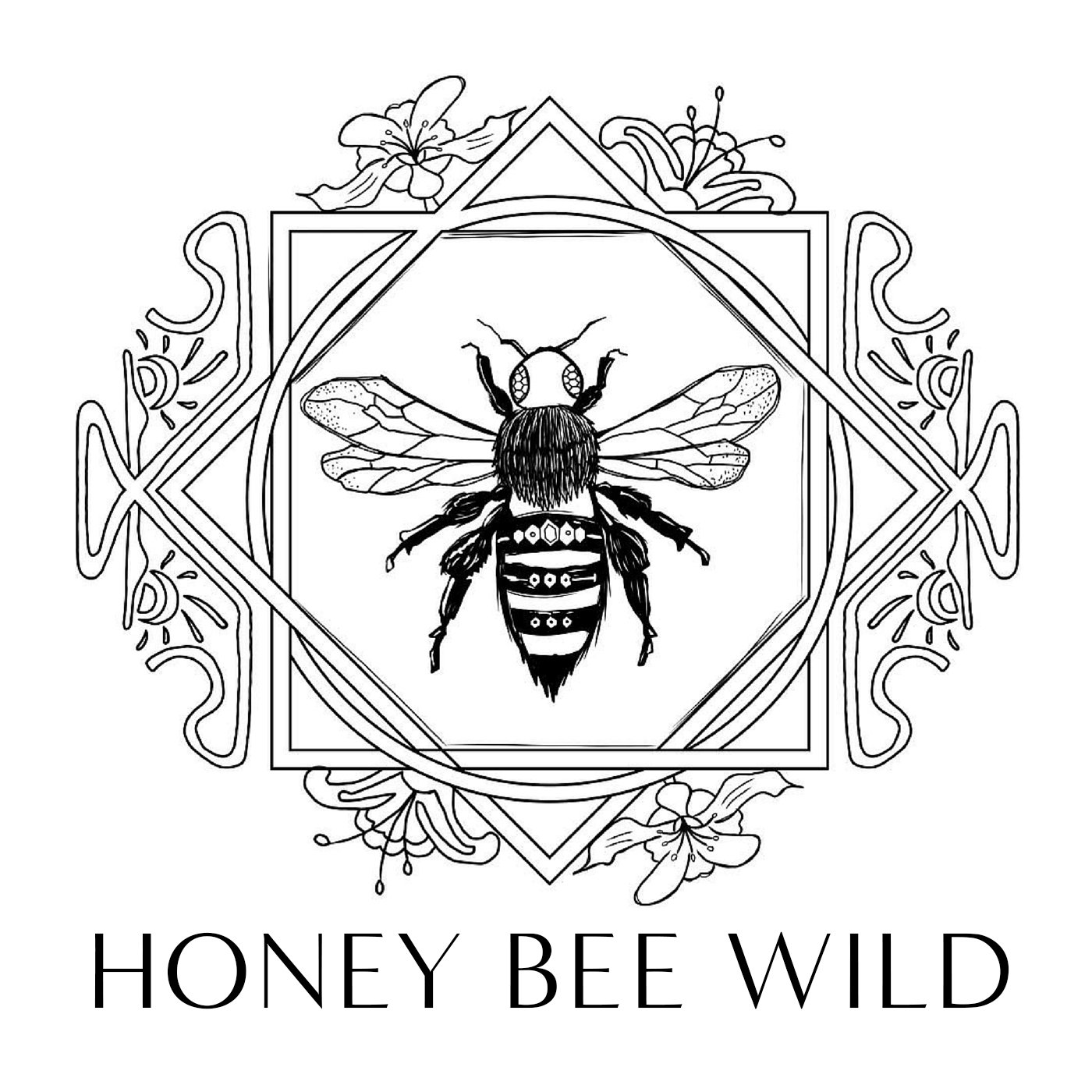












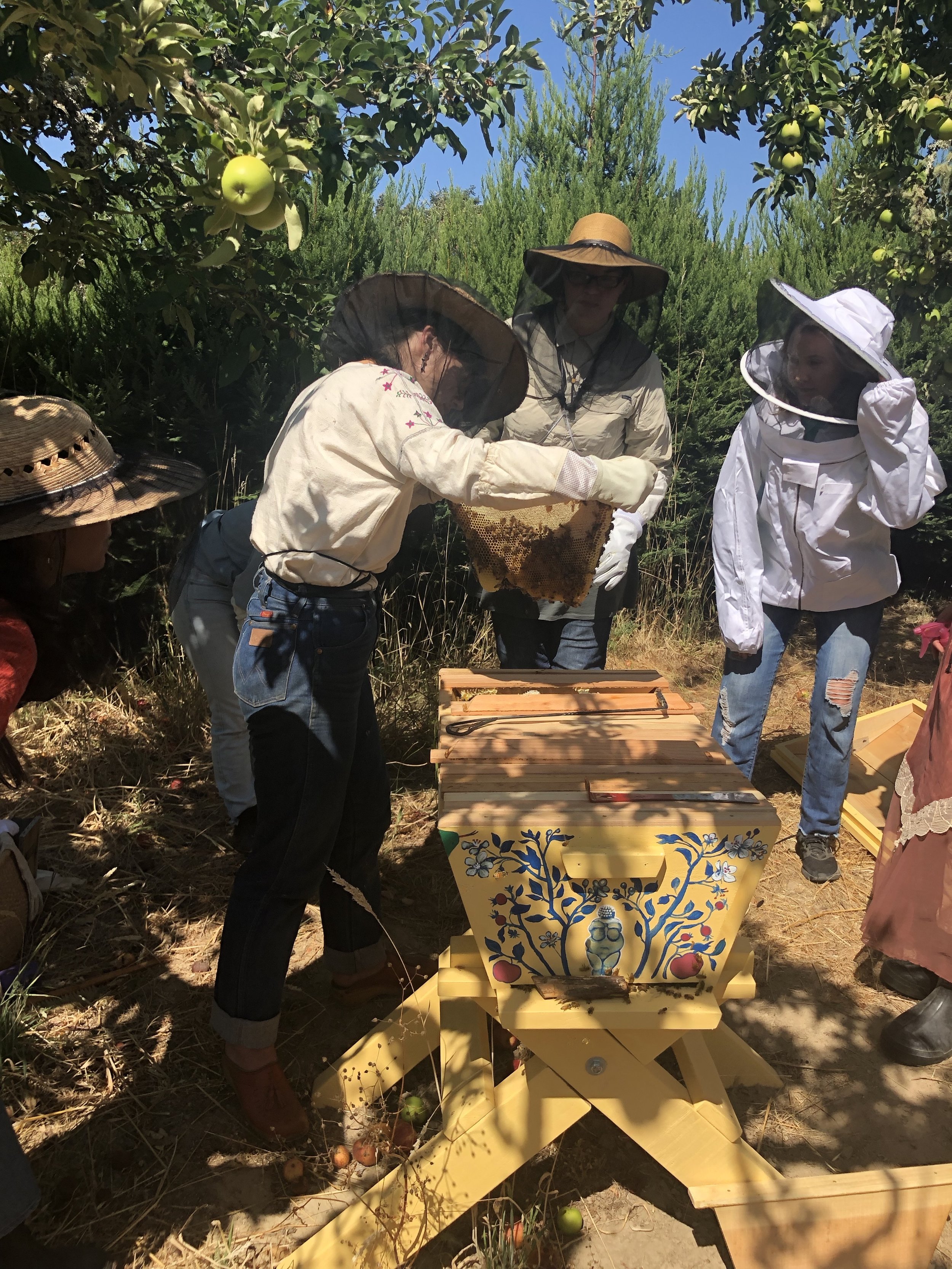



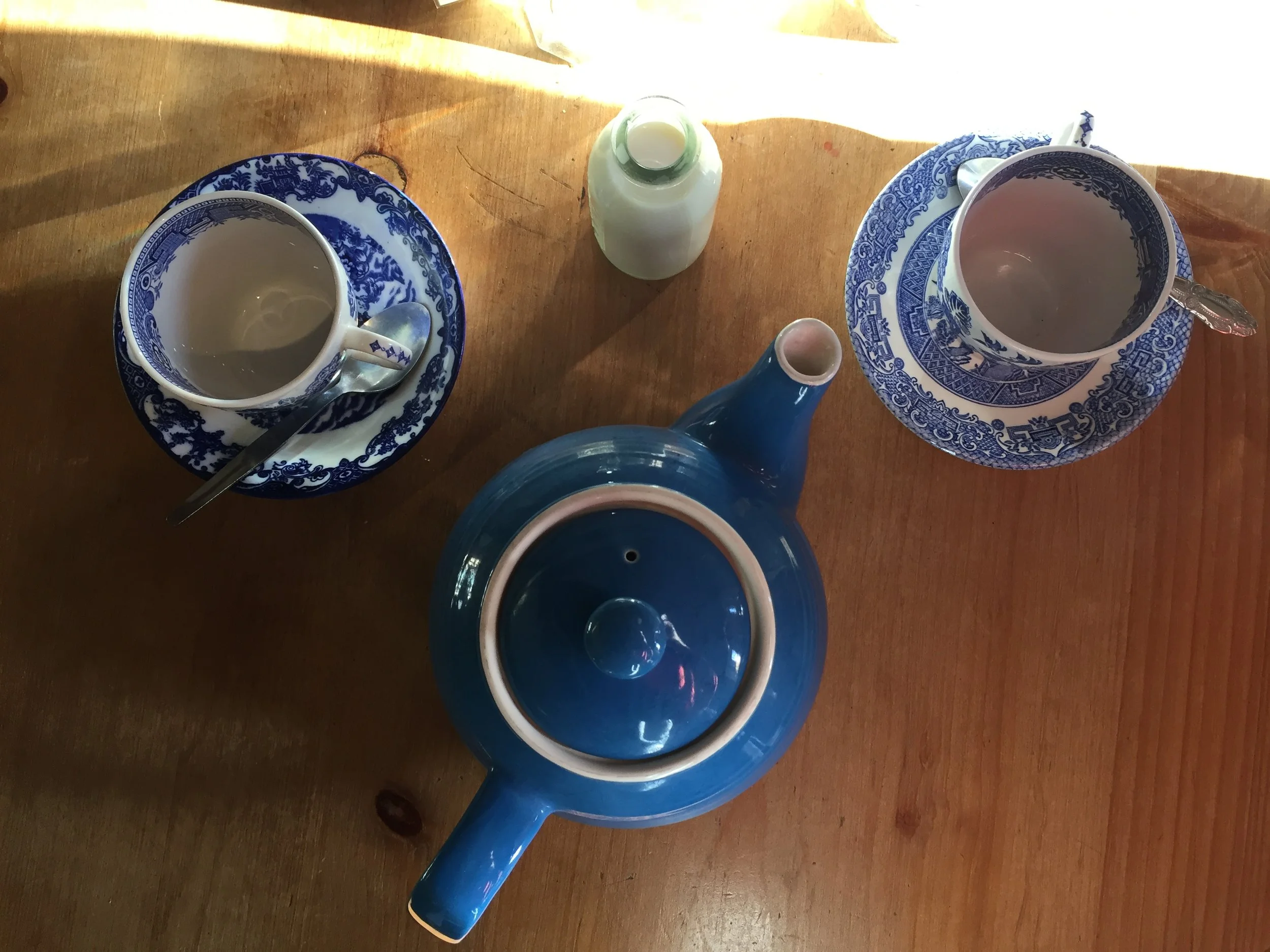

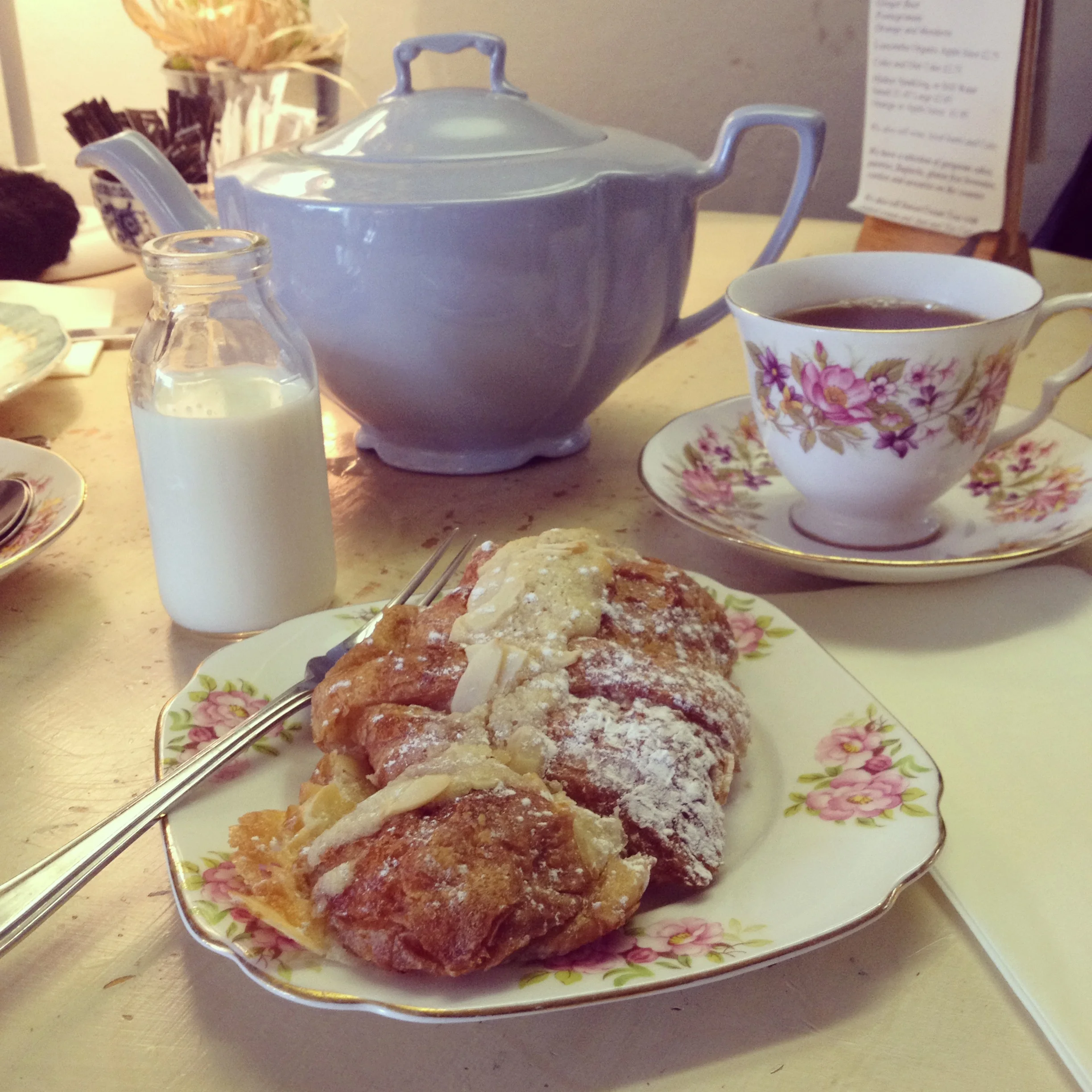

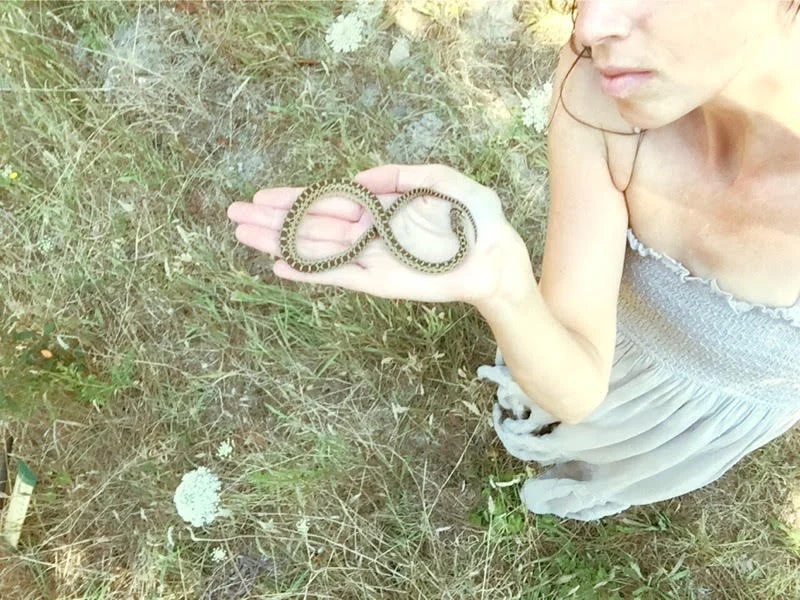
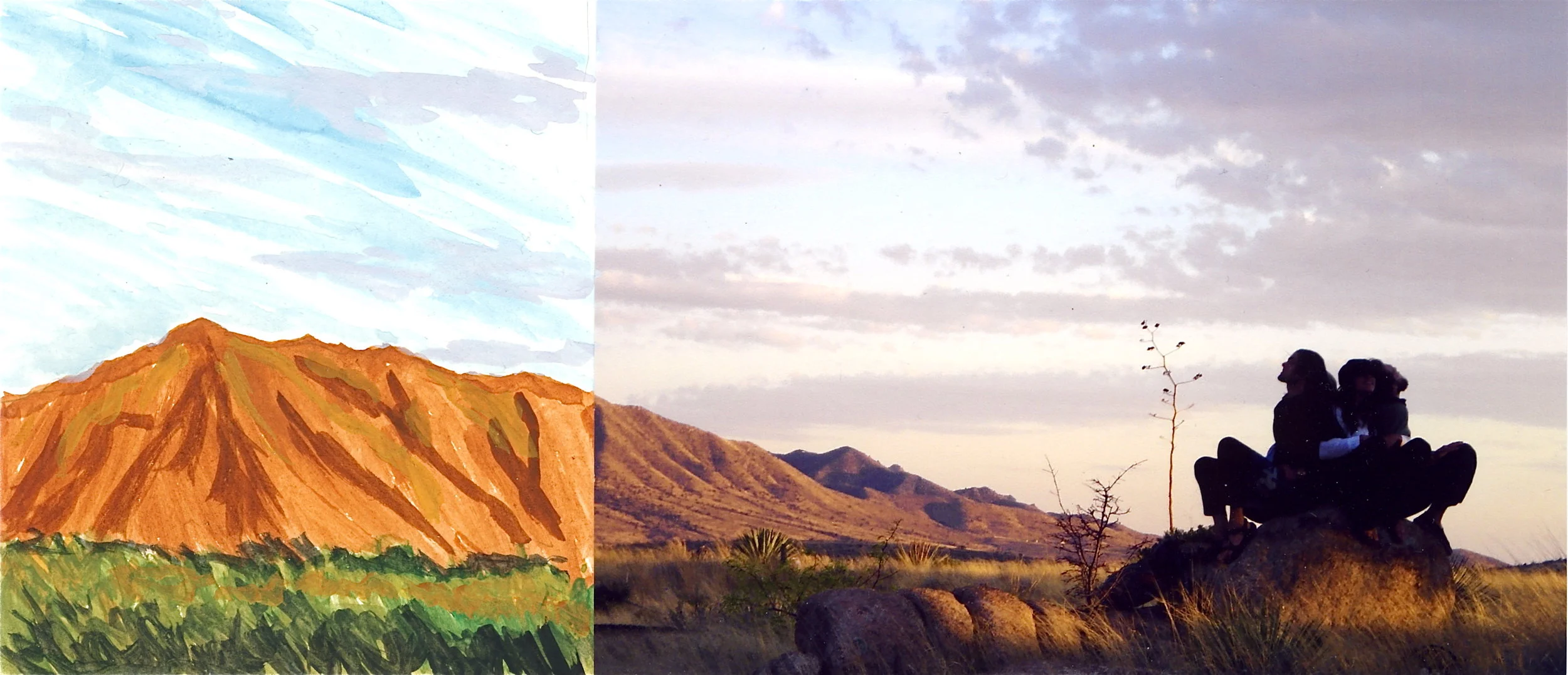
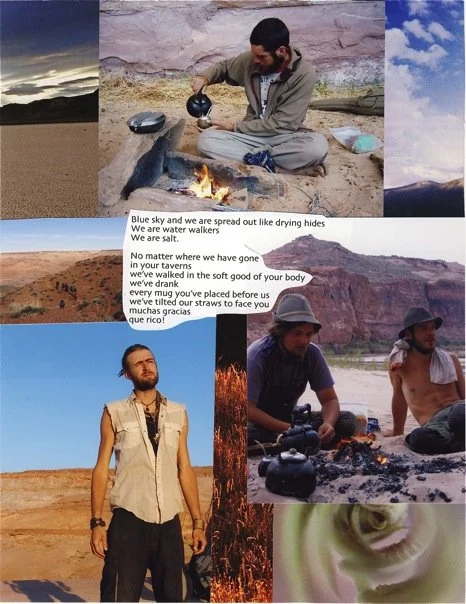
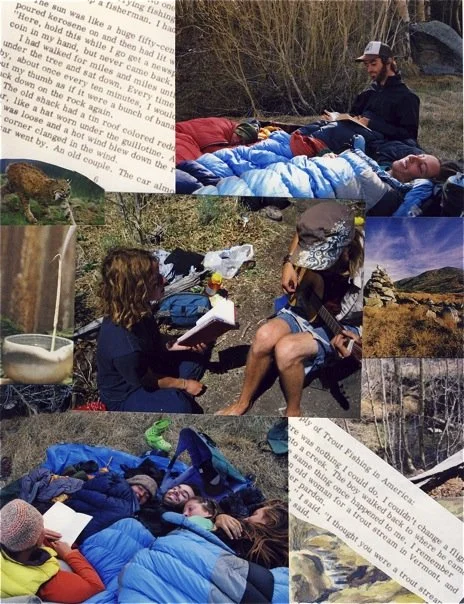
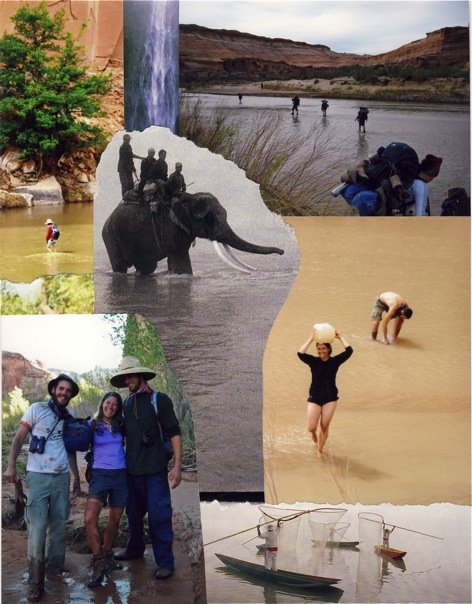
![John Collier [Public domain], via Wikimedia Commons](https://images.squarespace-cdn.com/content/v1/55f313bae4b029b54a71c646/1500593162038-1FU8NJ7WHQFS7YM2RYMU/AriellaDaly_Pythia)
